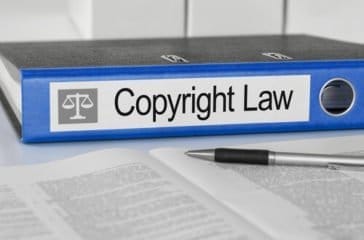Intellectual Property: Copyright and Trademark Lawyers in Sarasota

We understand that as an artist you can spend years producing, painting, performing and creating something meaningful and unique. Copyright laws will make sure your creative works are protected from infringement. Trademark laws will make sure that the branding you develop to sell your creative works is protected.
What Is Intellectual Property Law?
Intellectual property law consists of three separate categories: patents, trademarks, and copyrights. Many people confuse the three because some of the ideas are the same, however, there are BIG differences.
- Patent – A patent is the right granted to an inventor to exclude others from making or selling their unique or useful invention for a period of time. A patent is the most expensive type of intellectual property to obtain and maintain.
- Trademark – A trademark applies to a word, phrase, symbol or design that is associated with a specific product or service. By establishing a trademark, you can protect your brand name or logo from infringement and bring legal action if your brand or image is used without your permission.
- Copyright– A copyright is legal tool that gives the creator of an original and finalized work rights to control the way their work is used for a certain period of time. This could include anything from literary works, to visual, performance, or musical works. A copyright allows the owner to profit by licensing their works for a fee. A copyright is the most economical type of intellectual property to obtain and maintain.
- Licensing– Licensing is a partnership between an intellectual property owner and the licensee. It usually gives the licensee the right to use the intellectual property for a period of time in return for a payment or fee.
What should I do if someone violates my Copyright or Trademark?
By registering your copyright or trademark, you’ve already set the foundation to protect your work or brand. When someone uses your work or brand without permission, you can now take legal action to stop them. In these cases, legal action can range from a cease and desist letter to a lawsuit seeking damages for the unlawful use and profiting from your protected property.
Copyright and Trademark Attorney Alisha Buckman

Alisha Buckman, Attorney
Alisha Buckman is an Intellectual Property attorney focusing her law practice on Copyright and Trademark Law for creative artists and local businesses.
Whether you are trying to register a copyright/trademark to protect your work, or trying to stop someone from infringing on a copyright/trademark you already have registered, Alisha Buckman can help.
For more information and a free consultation about what steps to take next, contact our office at (941) 923-7700 or click here to email Alisha Buckman.
